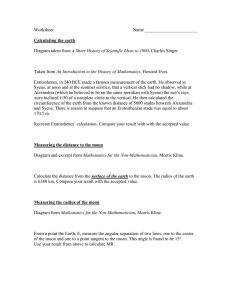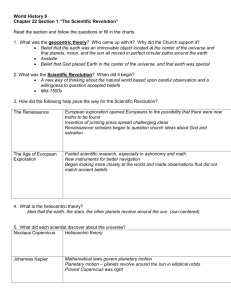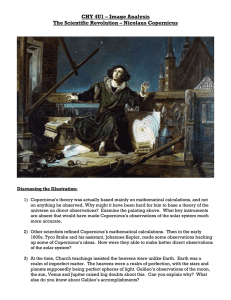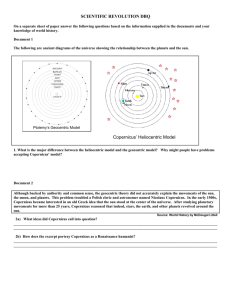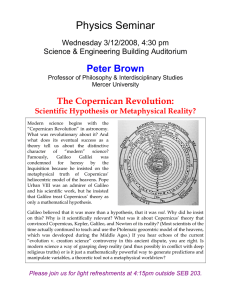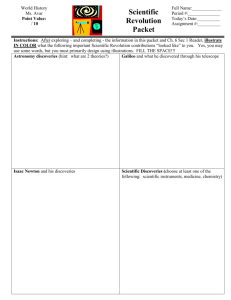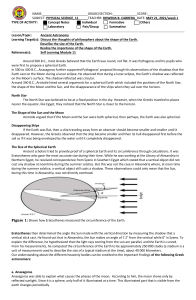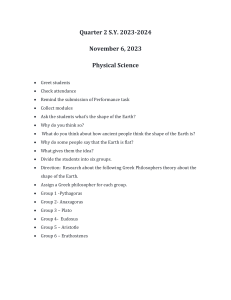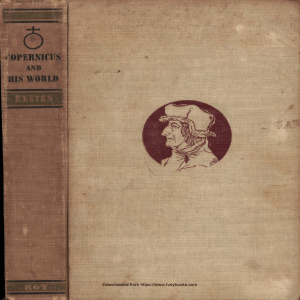Physics 10, Summer 2016 Problem Set #2
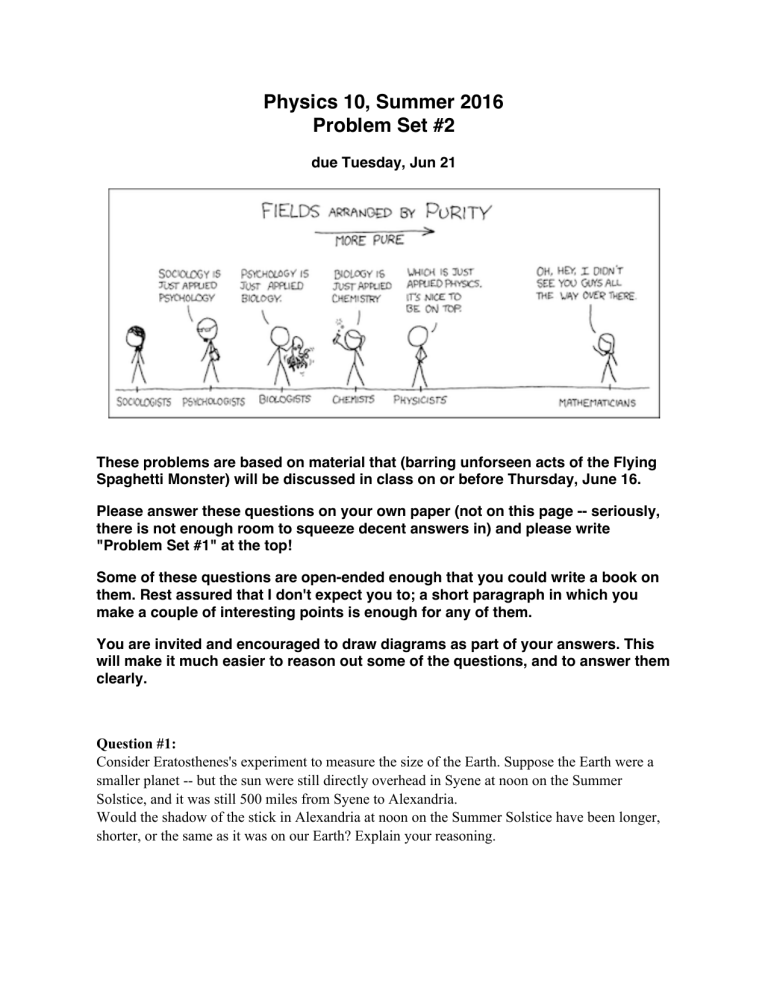
Physics 10, Summer 2016
Problem Set #2
due Tuesday, Jun 21
These problems are based on material that (barring unforseen acts of the Flying
Spaghetti Monster) will be discussed in class on or before Thursday, June 16.
Please answer these questions on your own paper (not on this page -- seriously, there is not enough room to squeeze decent answers in) and please write
"Problem Set #1" at the top!
Some of these questions are open-ended enough that you could write a book on them. Rest assured that I don't expect you to; a short paragraph in which you make a couple of interesting points is enough for any of them.
You are invited and encouraged to draw diagrams as part of your answers. This will make it much easier to reason out some of the questions, and to answer them clearly.
Question #1:
Consider Eratosthenes's experiment to measure the size of the Earth. Suppose the Earth were a smaller planet -- but the sun were still directly overhead in Syene at noon on the Summer
Solstice, and it was still 500 miles from Syene to Alexandria.
Would the shadow of the stick in Alexandria at noon on the Summer Solstice have been longer, shorter, or the same as it was on our Earth? Explain your reasoning.
Question #2:
Why do lunar eclipses always happen when there is a full moon? How can watching a lunar eclipse help you figure out the size of the moon?
Question #3:
Why was Aristarchus's measurement of the distance between the Earth and the Sun so much less accurate than his measurement of the distance between the Earth and the Moon? Would you say that his measurements of the Sun's distance accomplished anything useful at all?
Question #4:
Before his famous (or infamous) voyage from Europe to the Americas in 1492, Christopher
Columbus was advised by other navigators not to attempt the trip. How did Columbus's view of the Earth differ from that of his contemporaries, and why did this make him willing to attempt a voyage that others considered suicidal?
Question #5:
You are discussing science education with a friend, who says "Science classes should focus on known facts and laws, not on mere theories. If we teach a theory at all, we should make it clear that it's not proven, and give equal time to opposing theories."
Does his argument make sense to you? Why or why not?
(Food for thought: If you generally agree with what he said, is there any part you disagree with?
If you generally disagree, is there any part you agree on? And finally, does the word "theory" really mean what he think it means?)
Question #6:
We discussed several impressive discoveries made by astronomers over 2000 years ago. What were some aspects of the solar system that they did NOT yet understand? What limitations prevented them from figuring these things out at the time?
Question #7:
What were some major differences between Ptolemy's model of the solar system and
Copernicus's?
Question #8:
Why was Copernicus himself unsure that his heliocentric model made sense? How did Galileo and Newton's insights into physics help to make Copernicus's model more plausible?
(Hint: if you really are standing on a moving Earth, why don't you "feel" this motion?)
Question #9:
Describe at least one way in which Galileo disagreed with thinkers that went before him. (There are lots of possible answers.)
Question #10:
If the Earth is orbiting the Sun, rather than the other way around, then the stars must be vastly further away than ancient thinkers had believed. Explain why this is.
(Hint: What do we mean by "Stellar Parallax"?
